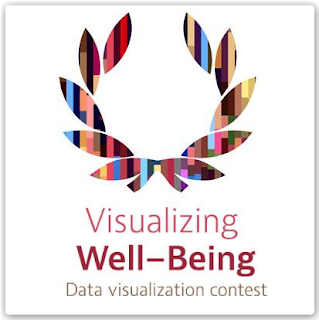Data Visualization Contest
There are a couple of big announcements to make on Wikiprogress this week. First of all, we are running a Data Visualization Contest over the summer called "Visualizing Well-being", with the prize for three winners of a paid trip to Mexico in October this year to attend the 5th OECD World Forum.
- How do well-being levels vary between countries, or within countries?
- How do well-being levels vary for different population groups (e.g. for young people, the elderly, by gender, etc.)?
- Why is it important to look beyond purely economic indicators (such as GDP) for a better picture of people’s current or future well-being?
- How can the multi-dimensionality of well-being be effectively communicated to the general public?
Wikiprogress Online Consultation on Youth Well-being: Summary Report
- Youth well-being matters not only for young
individuals themselves, but also for their families, communities and
countries: countries that are more youth-inclusive tend to be more
prosperous, while those that exclude youth tend to have higher crime and
more social instability.
- Defining “youth’ is not straightforward as
youth is a period of transition from childhood to adulthood, and from
dependence to independence. For some youth means under 24 years, for
others under 35. While youth age bands are somewhat arbitrary, there is
nonetheless a need for greater precision when talking about youth and
their needs: the needs of under-10 year olds are not the same as a 25-year
old, for example.
- Parents and guardians play a crucial
role in youth well-being, but it is important that role is supportive
rather than coercive.
- Youth participation in policy is important,
and social media is a good ‘space’ for this. Many young people feel that
adults don’t take them seriously. However, examples such as Obama’s
2008 presidential campaign as well as youth councils and university groups
show that youth are willing to participate. As
noted previously, social media can harness this willingness if older
generations and governments choose to listen.
- Young people’s rights need to be strengthened
as regards a labour market which depends heavily on the labour market:
remuneration and opportunities for learning need to be improved and
prioritised.
We would also like to thank our Consultation Partners for their input and support:






